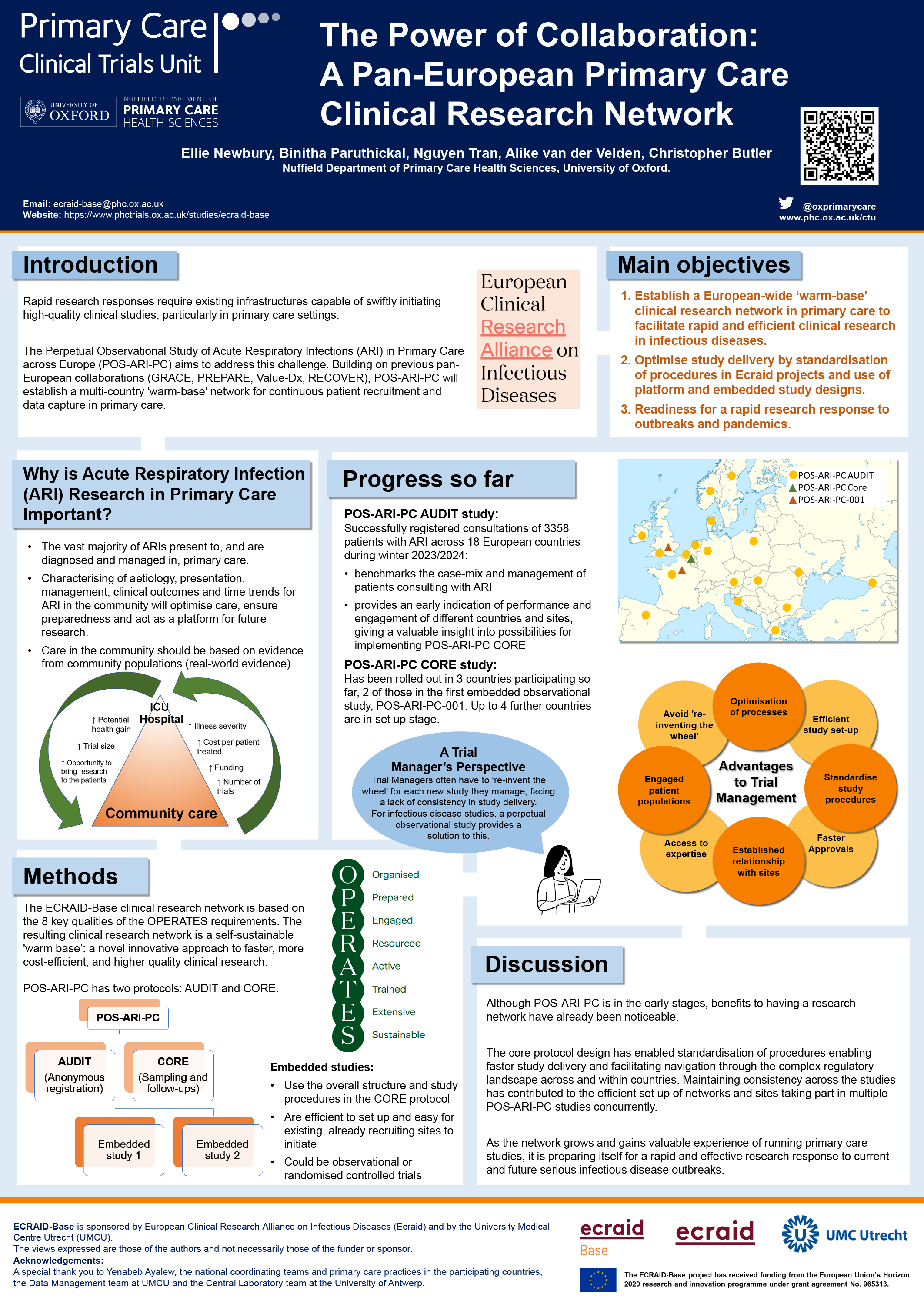POS-ARI-PC
 Acute respiratory tract infection (ARI) is the most common reason for consulting in primary care (PC) sites, such as general practices (GPs), urgent care centres, and paediatric care centres. Moreover, new and re-emerging pathogens are often first noticed in primary care.
Acute respiratory tract infection (ARI) is the most common reason for consulting in primary care (PC) sites, such as general practices (GPs), urgent care centres, and paediatric care centres. Moreover, new and re-emerging pathogens are often first noticed in primary care.
There are four important areas of focus in the management of ARI in primary care:
1. Accurate diagnosis and prediction of complications;
2. Making appropriate antibiotic and antiviral prescribing decisions;
3. Optimising patient care and treatment in an epidemic or pandemic situation;
4. Prevention, for example through vaccination.
POS-ARI-PC is a multi-country, prospective Perpetual Observational Study (POS) among patients presenting in PC with symptoms of ARI. It aims to provide an estimate of the overall incidence of illness and individual diagnoses, as well as critically important benchmark descriptive data related to patient characteristics, complications, outcome, and risk factors per viral aetiology. These detailed data allow for the identification of variation in management and care within and between countries, suggesting improvements for care planning and informing clinical guidelines.
In the longer term, the study will establish a research-ready infrastructure for enhanced observational studies and clinical trials related to treatment, diagnosis, and prevention of ARI in the primary care setting. Such a “plug-in” approach is especially beneficial during epidemics and pandemics because it makes it possible to set up new studies much quicker, without having to go through the full process of regulatory approvals for each individual research.
Interested in collaborating on this study?
Patient recruitment data
Audit
In late 2023, the POS-ARI-PC team began the Audit component of the study in which valuable data on patients with ARI and their management by GPs is collected. This entails anonymous registration of patient characteristics and data on general practitioner’s management: physical examination, diagnostic testing, prescribing, advice, and referral.
The potential benefits include monitoring of inappropriate antibiotic prescribing, analysis of trends, and between-country comparisons. Importantly, such data are invaluable for informing site selection for clinical trials.
The first Audit took place during Winter 2023-24; the second Audit commenced in December 2024, capturing data for Winter 2024-25.
![]() This study is being conducted under the ECRAID-Base project which has received funding from the European Union’s Horizon 2020 research and innovation programme under Grant Agreement No. 965313.
This study is being conducted under the ECRAID-Base project which has received funding from the European Union’s Horizon 2020 research and innovation programme under Grant Agreement No. 965313.